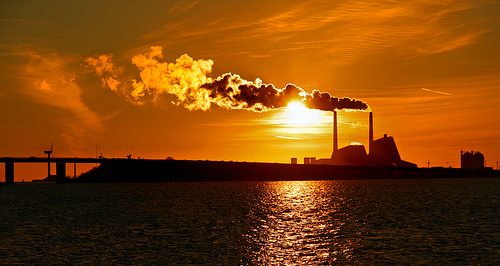

Economy
The IPCC’s stark warning: no nation will be untouched by climate change
The UN’s Intergovernmental Panel on Climate Change (IPCC) has warned of the effects global warming will have on food prices, national security and the environment in its latest sobering report.
The second part of the IPCC’s Fifth Assessment Report, released on Monday, states that the scientific evidence is “overwhelming”. It adds that climate change’s impacts have almost doubled since 2007.
Speaking in Yokohama, Japan, IPCC chairman Rajendra Pachauri said “Nobody on this planet is going to be untouched by the impacts of climate change.”
The report mentions some of the short-term effects on the environment, such as the melting of the Arctic, the acidification of oceans, the loss of coral reefs and the extinction of some animal species. It says freshwater supply will also become scarcer, while warming waters will impact fish populations.
The production of vital food crops such as rice, maize and wheat is predicted to drop by 2050, leading to domestic violence, migration, poverty and conflict.
Meanwhile, extreme weather will become more frequent and affect a large number of people in Asia, Europe and Africa. Chris Field, co-chair of the working group, said different regions have different levels of vulnerability, adding, “Climate change often interacts with other stresses to increase risk.”
Vicente Barros, co-chair of the report, said, “We live in an era of manmade climate change. In many cases, we are not prepared for the climate-related risks that we already face. Investments in better preparation can pay dividends both for the present and for the future.”
The study argues that cutting greenhouse gas emissions and investing in adaptation strategies might only limit the damage and would only be effective in a moderate warming scenario, given that most of the effects of climate change are already evident now.
Commenting on the findings, UK energy secretary Ed Davey said, “The UK is leading from the front and working with our European partners. We’ve adopted some of the most ambitious climate change targets and are investing in low carbon and energy efficiency technologies.
“This evidence builds the case for early action in the UK and around the world to lessen the risks posed by climate change. We cannot afford to wait.”
Meanwhile, Mark Kenber, CEO of the Climate Group, said that the IPCC report should act as a wake-up call for governments and businesses.
“Businesses that refuse to adapt are sealing their own fate and putting communities and investors at risk. They’re also wantonly squandering the massive opportunities in low carbon growth”, he said.
“The only road that leads to both a reduction in carbon emissions and economic growth is one built on a clean industrial revolution. This means investing and innovating now in large scale renewable deployment, energy efficiency, new finance mechanisms and low carbon business models.”
NGOs have also moved to warn about the implications of the IPCC’s latest findings. Samantha Smith, leader of the WWF global climate and energy initiative, commented, “This report tells us that we have two clear choices: cut emissions now and invest in adaption – and have a world that has challenging and just barely manageable risks; or do nothing and face a world of devastating and unmanageable risks and impacts.”
Further reading:
Leaked IPCC report warns of social and economic impact of climate change
UN: 13 of 14 warmest years on record were in 21st century
IPCC climate report: global temperatures likely to exceed 2C this century
Climate change may have contributed to Syrian civil war
Food supplies threatened as population growth and water shortages collide


 Environment11 months ago
Environment11 months agoAre Polymer Banknotes: an Eco-Friendly Trend or a Groundswell?

 Features10 months ago
Features10 months agoEco-Friendly Cryptocurrencies: Sustainable Investment Choices

 Features11 months ago
Features11 months agoEco-Friendly Crypto Traders Must Find the Right Exchange

 Energy10 months ago
Energy10 months agoThe Growing Role of Solar Panels in Ireland’s Energy Future





























